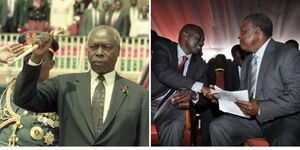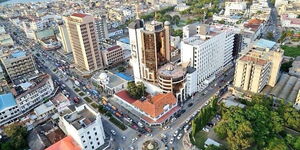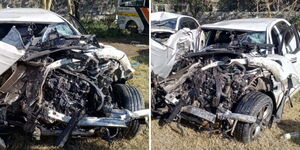Kenya is caught up in the toxic nuclear conflict between Israel and Iran over two members of Iran's secretive Quds corps tasked to take revenge bombings against Israel.
Ahmad Abolfathi Mohammad and Sayed Mansour Mousavi were arrested in Mombasa in 2012 in possession of 15kg of hexogen (RDX).
The chemical used in bomb making is considered as one of the most powerful military explosives.
During their trial, the government chemist told the court that the chemical was capable of bringing down Times Tower.
Sources divulged that they were planning to bomb the Israeli embassy, although the matter was not raised in court.
Sleuths noted that the chemical could have been broken up into smaller batches and then used in a series of attacks.
Subsequently they were jailed for 15 years.
In December 2016, the Iranian government sent two lawyers (Sayed Nasrollah Ebrahimi and Abdolhosein Gholi) to follow up on the case.
They were later to be arrested in a car belonging to the Iranian Embassy by anti-terrorism police after they were caught filming the Israeli embassy in Milimani.
Iran’s Foreign Affairs ministry managed to secure their freedom citing they were apprehended following a hostile intervention of, a third party, Israel.
According to the Sunday Nation, an Iranian operative had tried to recruit two more Kenyans as agents and they had plotted to have the Iranian prisoners escape.
On January the Court of Appeal ordered their release citing the evidence presented was weak but the DPP appealed fearing that they might escape.
4 months ago, the Supreme Court ruled that the Inspector General of Police Joseph Boinett was not in contempt of court for continuing to hold the suspects.
“This court did not order that (the Iranians) be released, but rather, that their rights be not infringed; we note that, indeed, they are not in prison, but in a situation more elevated than that of prisoners,” the judgment read.
Whichever way the case goes, Kenya middle of a political muddle which threatens the trade relations with Iran and Israel.












